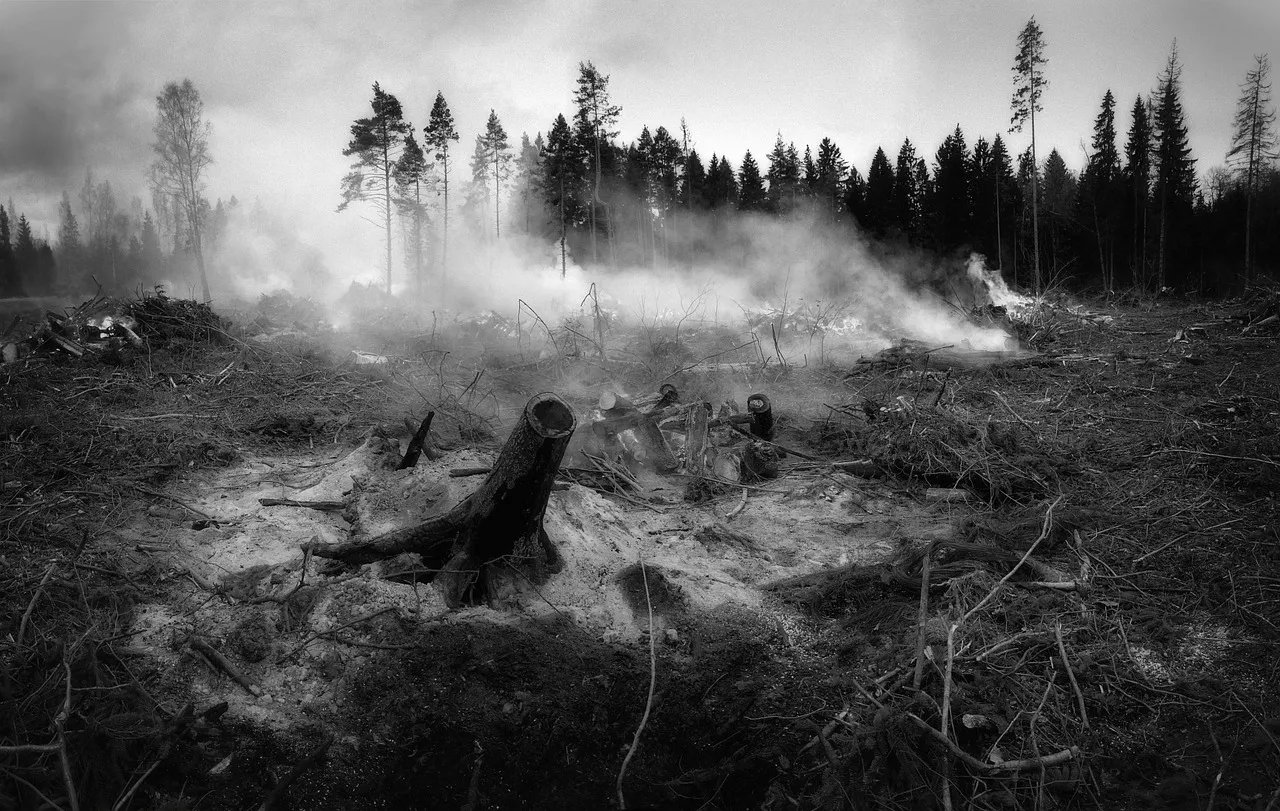The devastating wave of wildfires during the summer of 2025 has reignited a profound legal and political debate: can criminal liability be imposed upon public authorities who, despite having clear statutory duties of prevention, fail to comply with them?
The Chief Prosecutor of the Environmental and Urban Planning Division, Antonio Vercher, issued a directive to provincial prosecutors and the SEPRONA (Nature Protection Service of the Guardia Civil) ordering them to verify whether the affected municipalities had adopted and implemented the wildfire prevention plans mandated by Law 43/2003 on Forests (Ley de Montes), as well as the corresponding regional implementing provisions. Vercher warned that the absence of such plans could potentially entail criminal consequences, in cases where the omission was serious and causally connected to the spread of the fire.
This initiative sparked considerable controversy, as it implied moving beyond the traditional administrative sanction for such omissions, shifting the focus towards the potential criminal indictment of local authorities, such as mayors or councillors for the environment.
Reaction within the Public Prosecutor’s Office
Vercher’s proposal was almost immediately qualified by other members of the prosecutorial service. The Deputy Chief Prosecutor of Castilla y León, Purificación Sobrino, firmly stated that “the mere absence of plans does not constitute a crime,” emphasising that the seriousness of an administrative omission should not be confused with criminal typification.
This distinction is crucial, as it underscores a fundamental principle: criminal law is of strict application, governed by the principle of legality (Article 25 of the Spanish Constitution and Article 1 of the Criminal Code), and only conduct expressly defined as an offence can be punished. Thus, it is not sufficient for conduct to be negligent, reprehensible, or even administratively sanctionable; a criminal provision specifically covering that conduct is required.
Regulatory Framework and Criminal Liability for Omission
The Ley de Montes and its regional implementing rules establish the obligation to adopt wildfire prevention and defence plans. These plans include forest management measures, clearance of undergrowth, construction of firebreaks, installation of water supply points, provision of access routes for firefighting units, and emergency protocols.
Failure to comply with this obligation typically entails administrative sanctions, but not automatic criminal liability.
It should be clarified that mere formal approval of a prevention plan is not sufficient to exclude municipal liability. Article 48 et seq. of the Ley de Montes and regional provisions impose not only the obligation to approve such plans but also to implement the measures contained therein. From a criminal law perspective, the principle of guarantor liability requires actual and effective action to prevent the harmful result: a plan that remains on paper, without practical execution, does not exempt from liability. Conversely, where a municipality can demonstrate that it has both adopted and reasonably implemented the plan within its competences, criminal liability will be difficult to sustain, even if a wildfire nonetheless occurs.
Article 11 of the Spanish Criminal Code introduces the concept of commission by omission (omisión impropia), whereby an individual who fails to prevent an outcome they had a legal duty to avert is held criminally liable as though they had actively caused it. This requires three cumulative conditions:
- The existence of a specific legal duty to act.
- The actual and effective capacity to prevent the result.
- A causal nexus between the omission and the harmful outcome.
In wildfire cases, this entails assessing whether the absence of a municipal prevention plan—or its lack of execution—can be considered a cause of the spread of the fire, and, crucially, whether the law confers upon the mayor or the municipal council a legally relevant guarantor duty.
Relevant Case Law
To date, the Supreme Court has not imposed criminal liability on mayors or councillors for failing to adopt wildfire prevention plans. Jurisprudence on wildfires has focused on the material perpetrators of the fire, whether intentional (Article 351 CC) or negligent (Article 352 CC).
However, there are precedents in other fields where criminal liability has been admitted for omission of preventive duties. An example is Supreme Court Judgment 563/2025 of 19 June 2025, which upheld the conviction of an occupational safety officer for failing to implement protective measures against evident risks, amounting to gross negligence under Article 316 CC.
Such cases illustrate how, when the law clearly imposes a guarantor duty, omission may have criminal relevance. Nevertheless, such reasoning cannot be automatically transposed to the forestry context, as analogy is prohibited in criminal law to the detriment of the accused. Criminal liability could only be attributed to a mayor if the offence of negligent wildfire (gross negligence) could be applied strictly to his or her conduct.
Legal Analysis and Criteria
From an academic perspective, Vercher’s approach highlights a real issue: many municipalities systematically fail to comply with the obligation to adopt prevention plans, thereby increasing vulnerability to wildfires. However, transposing this omission into the criminal sphere raises several objections:
- Strict legality: the absence of a plan is not typified as an offence. Application of the Criminal Code would require the omission to fit within offences such as grossly negligent wildfire, which will not always be feasible.
- Evidentiary difficulties: it would be necessary to prove that the wildfire would have been avoided or mitigated had the plan been in place, which is practically impossible given the multiplicity of concurrent factors (climate, topography, individual negligence).
- Ultima ratio principle: criminal law should be reserved for the most serious and reprehensible conduct. Structural or administrative deficiencies are more appropriately addressed through administrative sanctioning and political accountability.
- Personal culpability: attributing liability to a mayor requires proving effective knowledge of the risk and a wilful or grossly negligent omission to adopt measures, which is difficult within complex organisations where competences are delegated.
Conclusion
The proposal to hold mayors criminally liable for lacking wildfire prevention plans may be understandable from a symbolic or political standpoint, but is hardly sustainable in criminal-legal terms under the current regulatory framework.
A more solid path lies in strengthening administrative and supervisory mechanisms:
- Imposing stricter administrative sanctions on non-compliant municipalities.
- Granting regional governments substitution mechanisms where a municipality fails to adopt a plan.
- Enhancing funding and coordination in the implementation of prevention measures.
At the criminal level, only in exceptional cases—where gross negligence is proven and a causal nexus established—could commission by omission liability be considered. Going further would require legislative reform creating a specific offence for wilful breach of wildfire prevention duties by public authorities.
Otherwise, there is a risk of stretching criminal interpretation beyond legality, undermining both legal certainty and the effectiveness of wildfire prevention policies.

